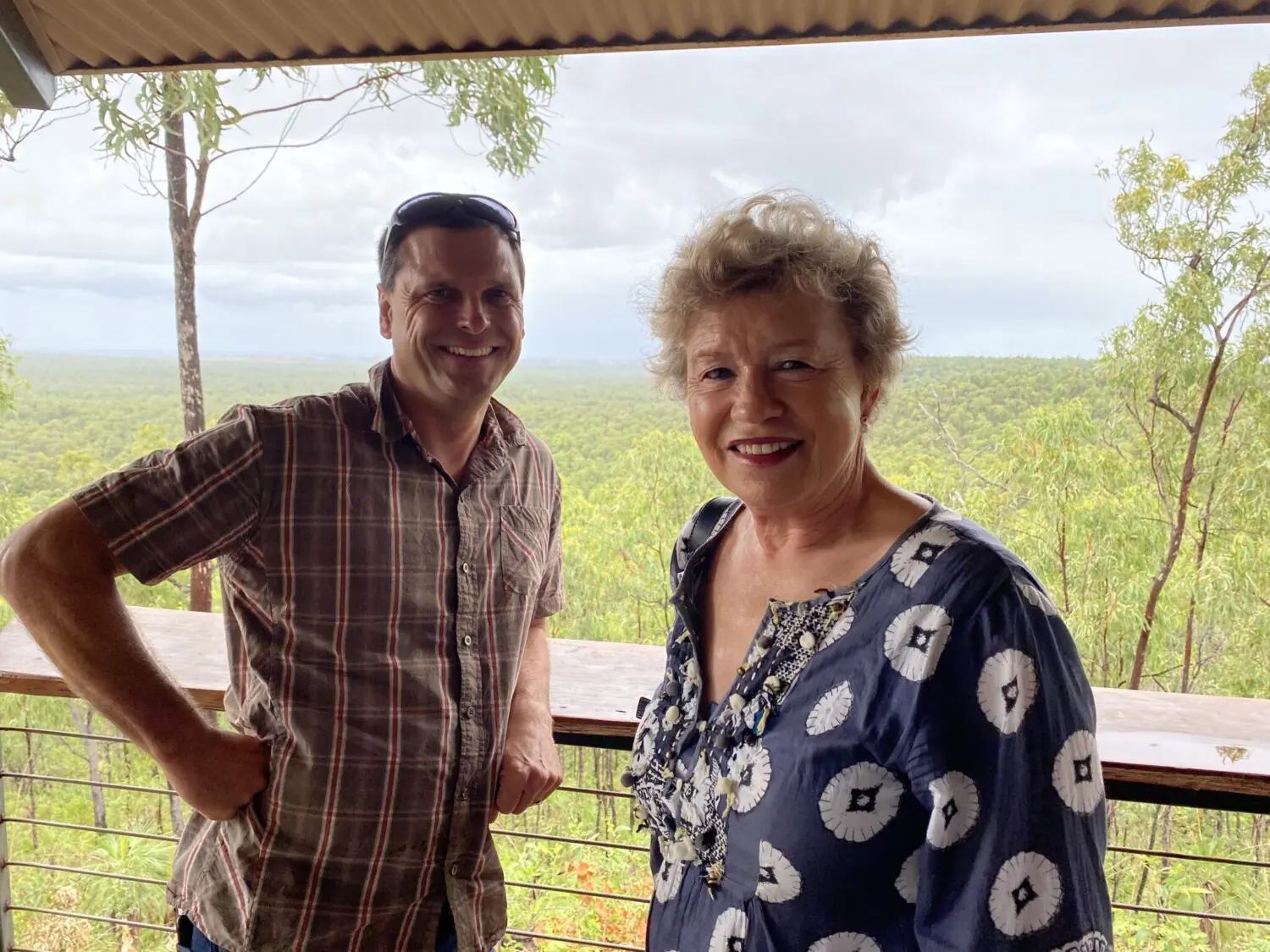Image: Professor Fiona Haslam McKenzie (right) with CRC TiME CEO Dr Guy Boggs (left)
Tell us about yourself?
I grew up in regional Western Australia, where some of my family continue to live. After completing secondary education in Perth at a boarding school, I undertook several undergraduate degrees in the US and Australia and later a PhD in resource economics at the University of Western Australia.
I find a regular long walk replenishes my soul, especially if I’m with my Kelpie/short-haired Border Collie Diggs; I enjoy playing golf (albeit badly); I am a pretty hopeless cook, but I like hand sewing.
Tell us about your current position?
I am employed by the University of Western Australia, where I lead the Centre for Regional Development and supervise PhD students, but most of my time is taken up with the secondment to the Cooperative Research Centre for Transformations in Mining Economies (CRC TiME) as Program 1 lead (Regional Economic Development).
I am also program co-lead for the ARC Training Centre for Healing Country which has considerable potential synergies with the CRC TiME as it aims to build a robust science-business interface that links Indigenous Australians to vibrant and resilient businesses in revegetation of damaged lands.
I also hold board positions with the Western Australian Environmental Protection Authority and the Regional Australia Institute.
What inspired you to become a social scientist?
I wish I could boast that I planned my career just as MBA and business strategists advise us we should, but I can’t. Broadly, my interests have always been in rural, regional and remote communities, and most particularly, how people live and work in those places; the drivers that keep and push people and jobs in the regions.
My career has been pretty much serendipitous. However, I do remember a boss telling me a long time ago that pursuing a career in non-metropolitan economic development was never going to get me anywhere – how wrong he was! Maybe he inadvertently spurred me on…?
Tell us about your program and what its primary goal is?
Program 1 focuses on regional economic development and how communities, industries, governments and other organisations can successfully plan for sustainable futures when mining has either finished or mines are in development transition.
I consider my primary goal to be shepherding innovative research projects that show the possibilities derived from land, infrastructure, skills and services that previously supported mining activities and using them for other activities through prescient planning and integrated decisions.
Talking to people, seeking out how other places are addressing the opportunities and challenges presented by the mine lifecycle, and working with people to adapt new ideas and research outcomes for successful mining transformations in Australian contexts is an exciting mission.
What makes you so passionate about your program?
The people and community dimensions of regional economic development, especially in rural, regional and remote contexts are fascinating. No two communities are the same but regardless of their size or location, or the resources that put them on the map, they are usually very determined to endure.
Mining has been important for the Australian economy, but resources are finite.
The challenge of imagining and preparing for an alternative future is not easy but it’s in Australia’s best interests to apply our best minds and good practice to shaping post-mining success in rural, regional and remote communities for economic and social well-being.
How does being involved with CRC TiME help support your love of science?
A collaborative organisation such as a CRC brings industry, government, communities and researchers together, to wrestle with a complex challenge. CRC TiME is highly practical. Harnessing researchers from a range of partner organisations across Australia, often from multiple disciplines is a little bit like an arranged marriage and you are never too sure what will come out of it, but I have never been disappointed.
Applying new ideas and different ways to think about the same problem alongside partners from government, industry, communities and people who have made a commitment to be part of the problem recognition and solution is really stimulating.
It’s the commitment that makes the difference and who knows what the potential possibilities might be?
To read more about Fiona’s program, click here

